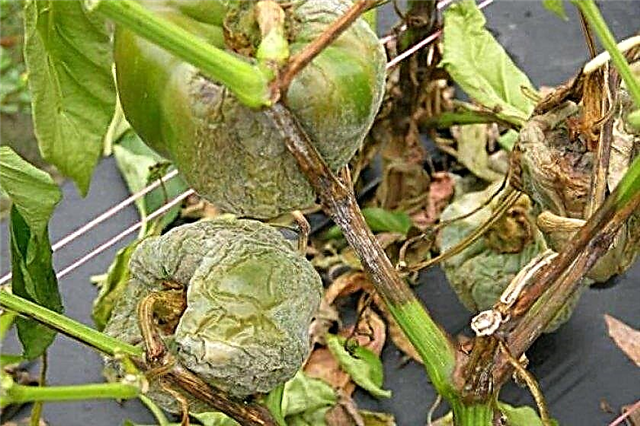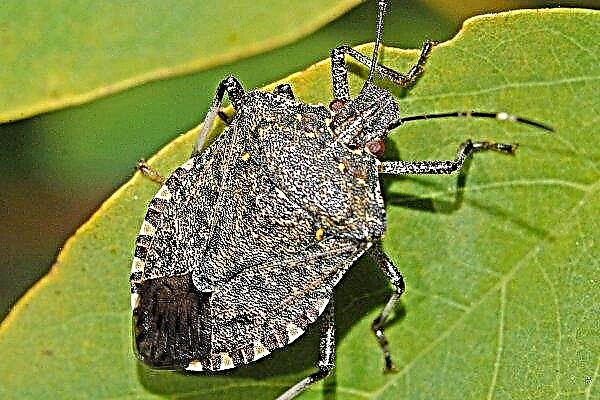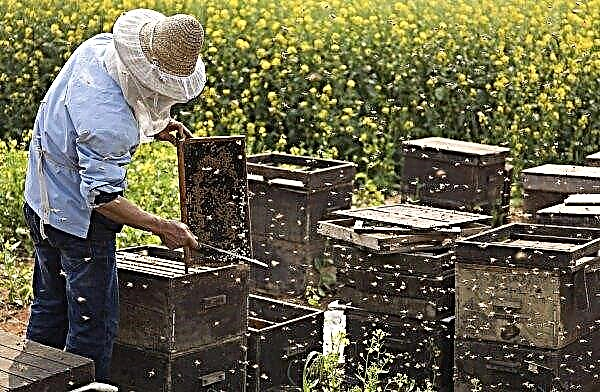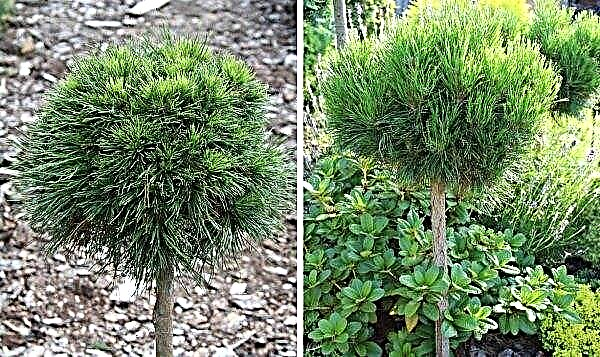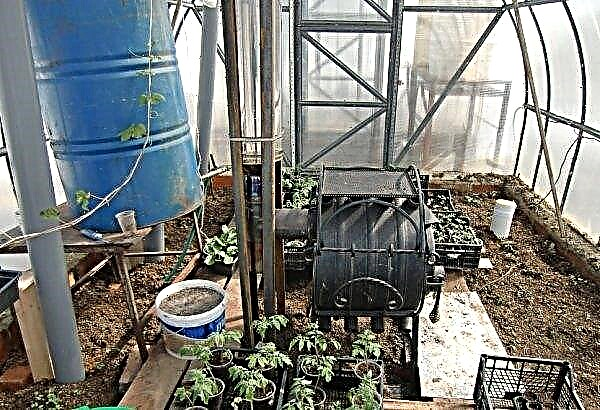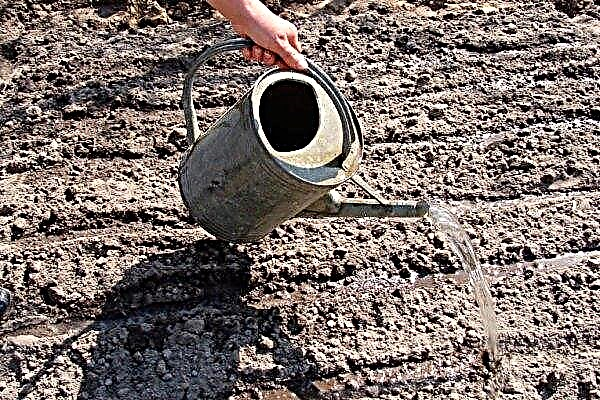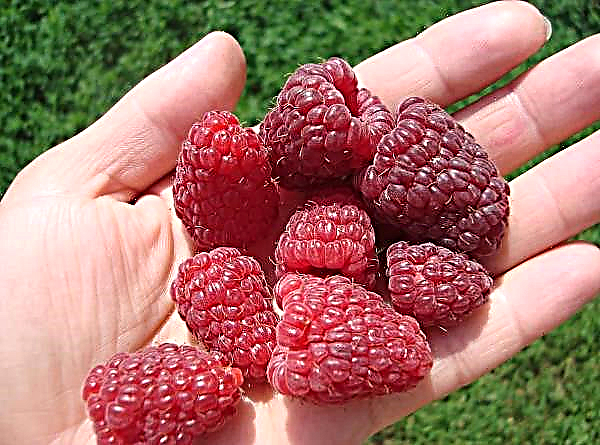One of the most common ailments affecting poultry, including turkeys, is sinusitis, or respiratory mycoplasmosis. In order for the farmer to be able to recognize the disease in time and take all necessary measures for its treatment, he needs to know the first characteristic symptoms of the disease and the sources of its occurrence.
Description of the disease
Mycoplasmosis respiratory, or better known as sinusitis, is an infectious disease, the causative agent of which is a unique microorganism, which is an intermediate link between the bacterium and the virus. Once on the mucous membrane, the pathogen spreads rapidly in the body, affecting the sinuses and respiratory tract.
Important! The danger of the disease is that its symptoms can appear only 10 days after infection. During this time, the disease is able to spread to most of the livestock.
This ailment can occur in acute form or become chronic. As the data show, most often sinusitis is affected by turkey poultry aged from two weeks to four months. The peak of the disease occurs in the autumn-winter period, when immunity decreases with the onset of wet and cold weather, a significant decrease in the intake of vitamins in the body is observed. As for the transmission methods of the “nondobacteria-nedovirus”, turkeys are usually infected by airborne droplets from infected birds through contaminated food, water, bedding, equipment or household items. Timely detected ailment is treated quite successfully. If untreated, the bird is killed.
As for the transmission methods of the “nondobacteria-nedovirus”, turkeys are usually infected by airborne droplets from infected birds through contaminated food, water, bedding, equipment or household items. Timely detected ailment is treated quite successfully. If untreated, the bird is killed.
Symptoms of the disease
Sinusitis in turkeys can occur in two forms: acute and chronic. Each of them has its own symptoms. If the ailment proceeds in an acute form, then its main symptoms are:
- labored, heavy breathing;
- a large amount of mucus secreted from the nasal passages;
- swelling in the larynx;
- wheezing, which is clearly audible when listening, and a dry cough;
- purulent discharge from the eyes, because of which it becomes painful for the bird to open its eyes;
- an increase in head volume due to swelling of soft tissues.
Did you know? Unique, characteristic only for turkeys, "mumble" is able to publish only the male. Moreover, each male has his own technique of "kuldykany", unlike the others. But the female always remains silent and in rare cases communicates through quiet noises, like twittering.
Chronic sinusitis is accompanied by the following symptoms:
- decreased bird productivity, weight loss;
- slow growth and development of young animals;
- decrease in egg production in females;
- a decrease in the overall activity of turkeys, the development of apathy, lethargy;
- persistent mucous discharge from the nose.

Pathogens and causes of the disease
Sinusitis, which affects turkeys, has its own causative agent, which cannot be attributed to either the class of bacteria or the class of viruses, since it occupies an intermediate place. The disease is very contagious and spreads rapidly among birds. As a rule, unsanitary conditions for keeping domestic turkeys are considered the main reason for its development.
Important! The appearance of any tumors on the head and neck of the bird indicates the presence of a cold disease.
Other causes of the spread of mycoplasmosis include:
- contact of healthy individuals with infected birds, infection through household items or equipment;
- drafts in the house or high humidity, which leads to the formation of dampness, and, as a result, the development of various pathogens;
- reduced immunity;
- deficiency of biologically active substances of groups A and D;
- the presence of stressful situations;
- infected feed or water;
- eggs of diseased turkeys.

Diagnostics
Since sinusitis, in addition to characteristic symptoms, can be accompanied by a number of others, for example, swelling of the tissues, suppuration of the eyes, etc., only a veterinarian can make an accurate diagnosis after a thorough examination of the bird and the necessary laboratory tests. Without the help of a professional, it is also quite difficult to determine the form of the disease - acute or chronic.
Important! Diagnosis of the disease will help careful monitoring of symptoms, analysis and proper identification of laboratory results.
In order to prescribe competent therapy, a veterinarian, first of all, must exclude diseases such as aspartillosis, pasteurellosis, laryngotracheitis, smallpox, colibacteriosis, which have similar symptoms.
How and how to treat sinusitis at home
Sinusitis in turkeys lends itself well to treatment, but failure to provide medical care for mycoplasmosis at the right time leads to death.
Medically
Treatment of sinusitis in turkeys should be started immediately after diagnosis. Drug therapy is based on the use of antibiotics and drugs aimed at strengthening the immune system. The greatest effectiveness in the fight against the disease is provided by the tetracycline antibiotics:
- Tetracycline;
- Farmazin;
- Furalizod;
- Typhosine.
In most cases, treatment of mycoplasmosis is carried out according to one of the following schemes:
- feed the bird for 5 days with a solution of Tylosin-200: 5 g of the drug mixed with 10 l of water;
- turkeys are fed with Farmazin-500 solution twice a day for 10 days: 1 g of medicine per 1 liter of pure water.
In addition to antibiotics, the stock is drunk for five days with vitamin complexes, for example, Chiktonik is used at a dosage of 1 ml per 1 liter of water. Birds that have severe symptoms of respiratory illness are washed with sinuses with the same Farmazin-500 solution. If, 2-3 days after treatment, bags of liquid remain on the head and neck, then it is necessary to pump out the liquid using a syringe with a long needle, and rinse the cavity with antiseptic agents - Chlorhexidine, Dioxidine. Of course, all manipulations should be carried out only by a professional doctor. As practice shows, most often sinusitis are small turkeys aged 2 to 16 weeks. For their treatment, Farmazin-500 powder is used, which is diluted in a ratio of 1 g of substance per 1 liter of water, and young animals are soldered for 10 days in the morning and evening at the dosage indicated in the instructions for the drug. In order for therapy to be effective and the disease not to return again after some time, treatment must be carried out strictly to the end.
Of course, all manipulations should be carried out only by a professional doctor. As practice shows, most often sinusitis are small turkeys aged 2 to 16 weeks. For their treatment, Farmazin-500 powder is used, which is diluted in a ratio of 1 g of substance per 1 liter of water, and young animals are soldered for 10 days in the morning and evening at the dosage indicated in the instructions for the drug. In order for therapy to be effective and the disease not to return again after some time, treatment must be carried out strictly to the end.
Folk remedies
The treatment of respiratory sinusitis exclusively folk remedies does not have the desired effect. To cure the livestock, antibiotics cannot be dispensed with, however, folk remedies will help strengthen the immunity of the bird, increase the body's resistance to various ailments, thereby speeding up and simplifying the healing process.
Important! After a successful treatment, turkey fillets can be eaten only after a month.
The following folk decoctions and infusions are used as maintenance therapy:
- infusion of leaves and berries of strawberries. It allows you to increase the body's immune defenses, slightly reduce the temperature, reduce nasal discharge. Instead of water, they are given turkey poults three times a day;
- decoction of chamomile. A weak chamomile decoction helps to relieve inflammation in the nasal cavity, reduce swelling, and strengthen immunity. Give such a tool several times a day.

Care for turkeys after illness
First of all, the diseased bird should be isolated from the rest of the livestock and provide it with certain conditions:
- place the turkey in a warm, dry room, without drafts and direct sunlight;
- feed three times a day with special combined feeds;
- change bedding material daily, because even in feces, the microorganisms of the disease live for three days;
- drink the bird with medicines for 5–10 days, depending on the type of medicine, and at this time do not give her ordinary water.
Did you know? Despite some visual awkwardness, the turkey is an ardent bird and rarely dwells on only one female. As a rule, when mating, they expect a ratio of males to females of 1:10. Immediately before the start of the process, the turkey spreads its tail, raises its feathers on end, paces in circles near the female, so to speak, "shows all its beauty and strength."
Preventative measures
It is much simpler and easier to prevent the disease than to treat it later. Preventive measures consist of a set of measures aimed at ensuring comfortable living conditions for the bird, high-quality, nutritious nutrition and timely cleaning of the house.
Compliance with the temperature regime
As you know, for any respiratory disease, a moist and moist environment is most favorable, therefore, in the room where the turkeys live, the necessary temperature regime should be implemented:
- in the first week of life, turkey poults maintain the temperature in the room at +32 ... + 34 ° C;
- starting from the 8th to the 14th day, the temperature is gradually reduced within +28 ... + 32 ° С;
- from the 15th to the 21st day, temperature indicators are set at +26 ... + 28 ° C;
- from the 22nd day and further the temperature is reduced to +18 ° C.
Conditions of detention
No less important in the prevention of sinusitis are conditions of detention, which put forward a number of requirements:
- per 1 square. m should be no more than 10 individuals of 8 weeks of age, 5 individuals of 16 weeks and 3 individuals of older age;
- the maintenance of turkeys with birds of another species is strictly prohibited;
- daily replacement of bedding material in the house. As a litter straw, sawdust, peat, corn stalks are perfect;
- good ventilation. Stagnant moist air in the room negatively affects the health of birds, contributes to the development of various infectious ailments;
- lack of drafts. Often, drafts become the cause of colds, respiratory diseases, including sinusitis.
 Birds should also arrange regular walking. Walking young animals for the first time is carried out at an air temperature of at least + 20 ° C.
Birds should also arrange regular walking. Walking young animals for the first time is carried out at an air temperature of at least + 20 ° C.Diet
High-quality nutrition balanced in vitamins and minerals will enhance the health of turkeys, increase the body's resistance to external harmful factors, and improve physical health. Foods rich in vitamins A, B, E, and C must be present in the diet. Various green herbs, fresh vegetables, and greens can provide them. The menu must include cereals - oats, wheat, corn, as well as root crops, and legumes. Garlic, green onions, apple cider vinegar, which are added to water, are considered good stimulants of immunity for birds.
It is recommended to provide birds with mineral fertilizing, which are suitable small shells, chalk, limestone. Regular vitamin-mineral complexes should be given to turkeys regularly, which can eliminate the deficit of active biological components in the body, improve digestion, and strengthen immunity. Be sure to always have clean, fresh water in the drinking houses so that the birds can quench their thirst at any time.
Cleaning and disinfection
The key to good health of turkeys is also the cleanliness of the room. If a case of the occurrence of infectious sinusitis is recorded on the farm, the diseased individual should be immediately separated from the others, and disinfection should be carried out in the house:
- the room is washed well with plain warm water;
- dry the house for three days;
- then they treat the walls, ceiling, floor and all equipment with disinfectants: a solution of potassium permanganate or slaked lime.
Unfortunately, there is currently no vaccine for such a serious disease as infectious sinusitis, so a breeder who wants to bring out healthy and strong turkeys must be sure to know the first characteristic symptoms of the disease, effective methods of its treatment and not to forget that the most effective method the fight against the disease is timely, well-executed prevention.

